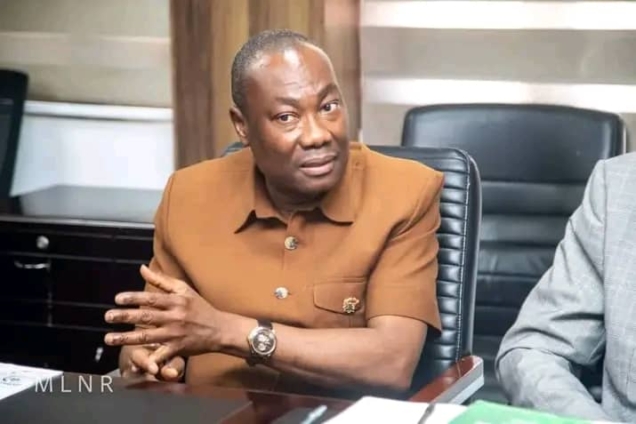After months of intense public and political pressure, the Chief Executive Officer of the Minerals Commission, Martin Kwaku Ayisi, has been removed from his post.
The decision, though not officially explained, has been widely celebrated, particularly among the grassroots of the National Democratic Congress (NDC).
Ayisi, a prominent holdover from the previous administration, was appointed in 2017. For eight years, he played a central role in licensing small-scale miners, many of whom later engaged in the devastating illegal mining practice known as galamsey.
Despite widespread condemnation and pleas to protect Ghana’s forests and water bodies, Ayisi staunchly defended his policies, even taking to airwaves on Metro TV and Asempa FM to justify the continuous granting of permits.
His tenure, alongside that of former Minister Samuel Abu Jinapor, saw an unprecedented number of licenses issued, which critics say accelerated the destruction of the nation’s natural resources.
A New Government, A New Direction
The new government, led by President Mahama, has moved swiftly to reverse these trends. In July, a major directive was issued to revoke all small-scale mining licenses granted after December 7, 2024. This action was part of a broader anti-galamsey effort that also targeted insolvent financial institutions.
At a recent Government Accountability Series event in Accra, Minister Emmanuel Armah-Kofi Buah revealed that 55 mining licenses issued under Ayisi’s watch during the transitional period had already been revoked.
Furthermore, a sweeping audit by the Small-Scale Mining Review Committee has placed 907 of 1,278 active licenses under investigation for irregularities, with the possibility of further revocations.
“These actions are intended to overhaul the mining licensing regime,” Buah stated, emphasizing the government’s commitment to enforcing environmental and legal standards.
A similar audit is now underway for large-scale mining operations.
Calls for Accountability
The National Concerned Small Scale Miners Association, Ghana (NCSSMAG), had been a key voice in the campaign against Ayisi. In a statement released in April, the association’s president, Michael Kwadwo Peprah, called for Ayisi’s immediate dismissal.
The group argued that the Minerals Commission’s policies under Ayisi’s leadership contributed directly to land and water degradation.
“His actions and leadership, particularly in granting leases that allow mining in forest reserves and river bodies, directly contradict the environmental and regulatory reforms the government seeks to implement,” the statement said.
“Retaining Mr. Ayisi as CEO poses a significant threat to the government’s efforts to promote sustainable and responsible small-scale mining.”
Other Holdovers Under Scrutiny
Ayisi’s departure has renewed public interest in other key appointees from the previous administration who remain in their roles. Among them are Yvonne Nana Afriyie Opare of the Ghana Airports Company, Nana Dwemoh Benneh of the Ghana Infrastructure Investment Fund (GIIF), and Frank Mantey of the Public Procurement Authority (PPA).
Also still at post are Deputy CEO Hugh Brown at the Forestry Commission and Professor Ahmed Jinapor, head of the Ghana Tertiary Education Commission and older brother to the well-known Jinapor political family.


